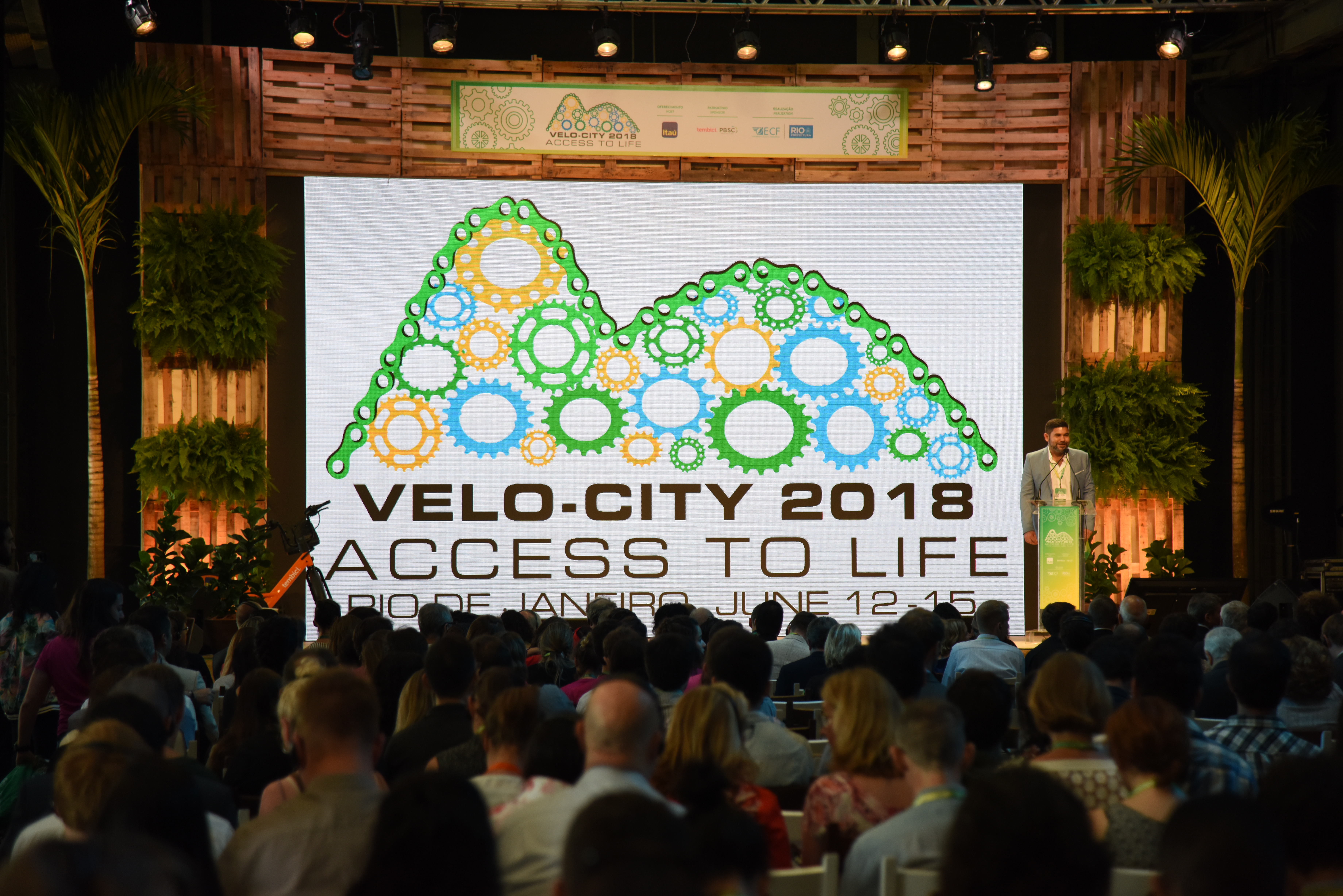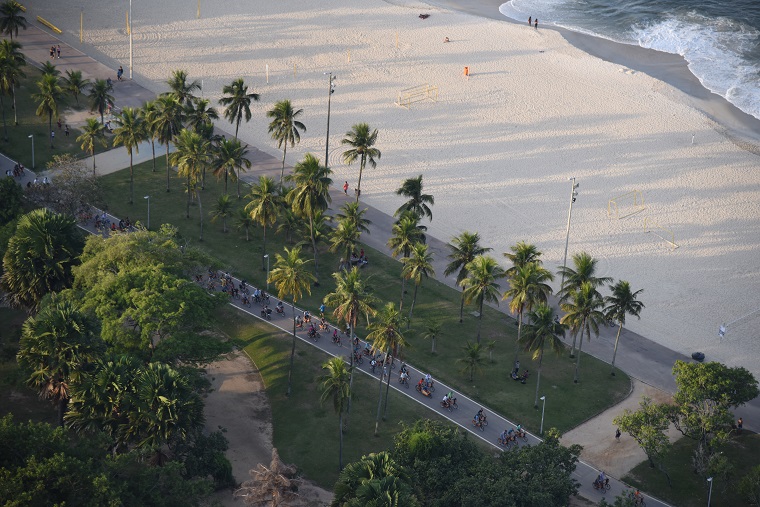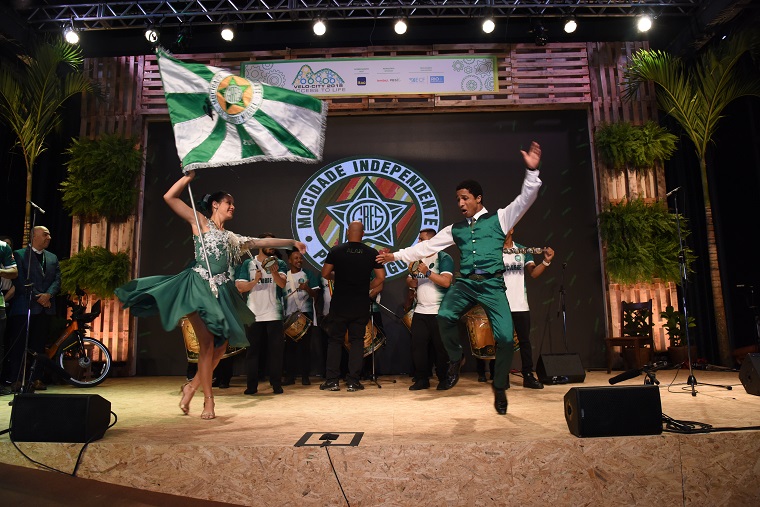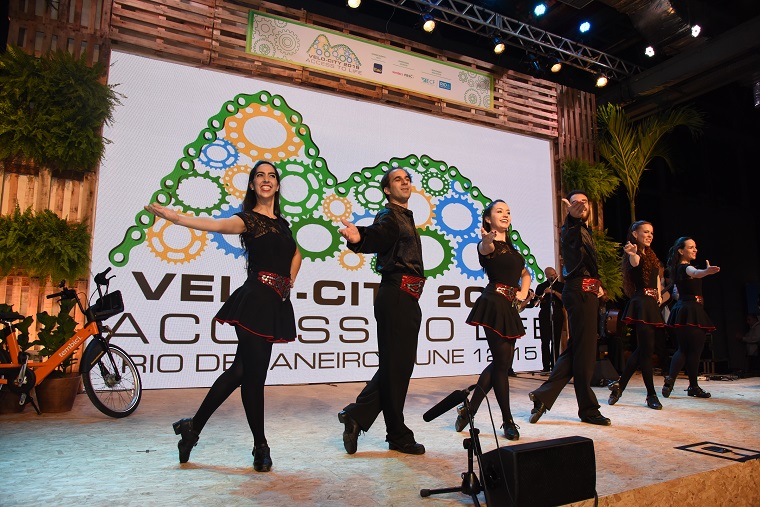
Velo-city 2018 Rio de Janeiro wrap-up and highlights
After four days of inspiring and stimulating sessions bringing together the top spokespersons from all the relevant fields related to cycling, Velo-city 2018 Rio de Janeiro is finally over and we all said goodbye to Cidade Maravilhosa.
Velo-city 2018 Rio de Janeiro had everything. More than 1000 participants attended the conference, setting a new record among all Velo-city conferences outside Europe. More than 200 exceptional speakers shared their expertise and talked about important issues such as cycling and social inclusion, gender equality, diversity and behaviour change, offering a stunning 73 sessions. Amazing side-events, social events and a beautiful bike parade of 500 smiling people on bikes from Port Area to Aterro do Flamengo surrounded the program sessions, making a week full of cycling even more unforgettable.

Focusing now on the program highlights of Velo-city 2018, let’s revisit the most important sessions and topics of each day of the conference. In a nutshell, day 1 of Velo-city 2018 included "City for all" and “Megacities” plenaries, as well as other discussions addressing themes such as bike infrastructures, gender equality in cycling, access to life, bike-sharing and behaviour change.
“Access to life means making cities friendly to children and young people. Conversely, cities can also achieve Access to Life by opening their doors to children, who are possibly the ultimate indicator of the quality of urban life. A city envisioned through children’s eyes is likely to be a bike rather than a car paradise”. Eliana Riggio from Unicef.
Day 2 of Velo-city 2018 took off with a plenary session about technology, where leaders in the field discussed the prospects and challenges for cycling of new technologies such as artificial intelligence, automated technology, etc. The evening plenary addressed cycle tourism, a topic included for the first time in the Velo-city plenaries.
“Mobility and tourism cannot exist separately”. Julianna Decastro from Núcleo de Planejamento Estratégico de Transportes e Turismo – PLANETT.
Day 3 featured a morning plenary on intermodality, presenting also the case of Brussels, which is still one of the most car-centered cities, even though efforts are being made to change this mentality. Several speakers also addressed during the day the power of cycling for social inclusion, provided that good infrastructure is available. The evening plenary focused on advocacy for inclusion, presenting the cases of Brazil and Mozambique in eye-opening talks.
“We want to move from a city for cars to a city for people and we need to change mentality. We need to talk about objectives, not about the means”. Pascal Smet, Minister of Mobility in Brussels.
The 4th and final day of the conference began with a plenary on global policy and ended with a stimulating discussion about governance, but the day was also packed with presentations on various topics. Two Scientists for Cycling sessions assessed the impact of cycling measures and the potential of new technologies; a cycle tourism interactive workshop got people on their legs for a practical understanding of the topic; and the boom of the e-bike sector was discussed.
“Cycling is a way of moving, cycling is a way of participating in society, cycling is a way to access healthier living, cycling is a way to access economic opportunities, cycling is a way to access fulfillment” Philippe Crist from OECD.
At the end of the conference took place an amazing closing ceremony filled with Brazilian samba and Irish river dance, which marked Velo-city’s transition from Rio de Janeiro to Dublin.


See more pictures from Velo-city 2018 here.
Network/Project Involved:
Contact the author
Recent news!
Upcoming events
Contact Us
Avenue des Arts, 7-8
Postal address: Rue de la Charité, 22
1210 Brussels, Belgium









